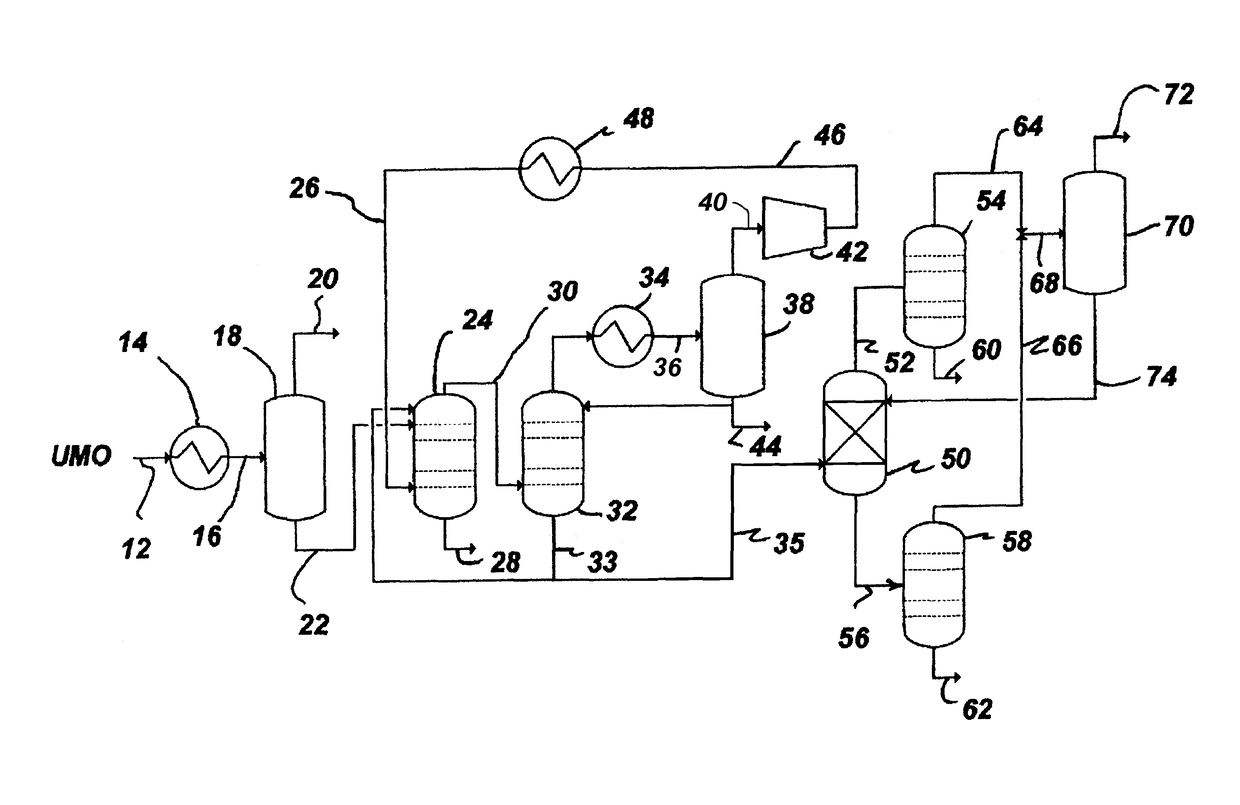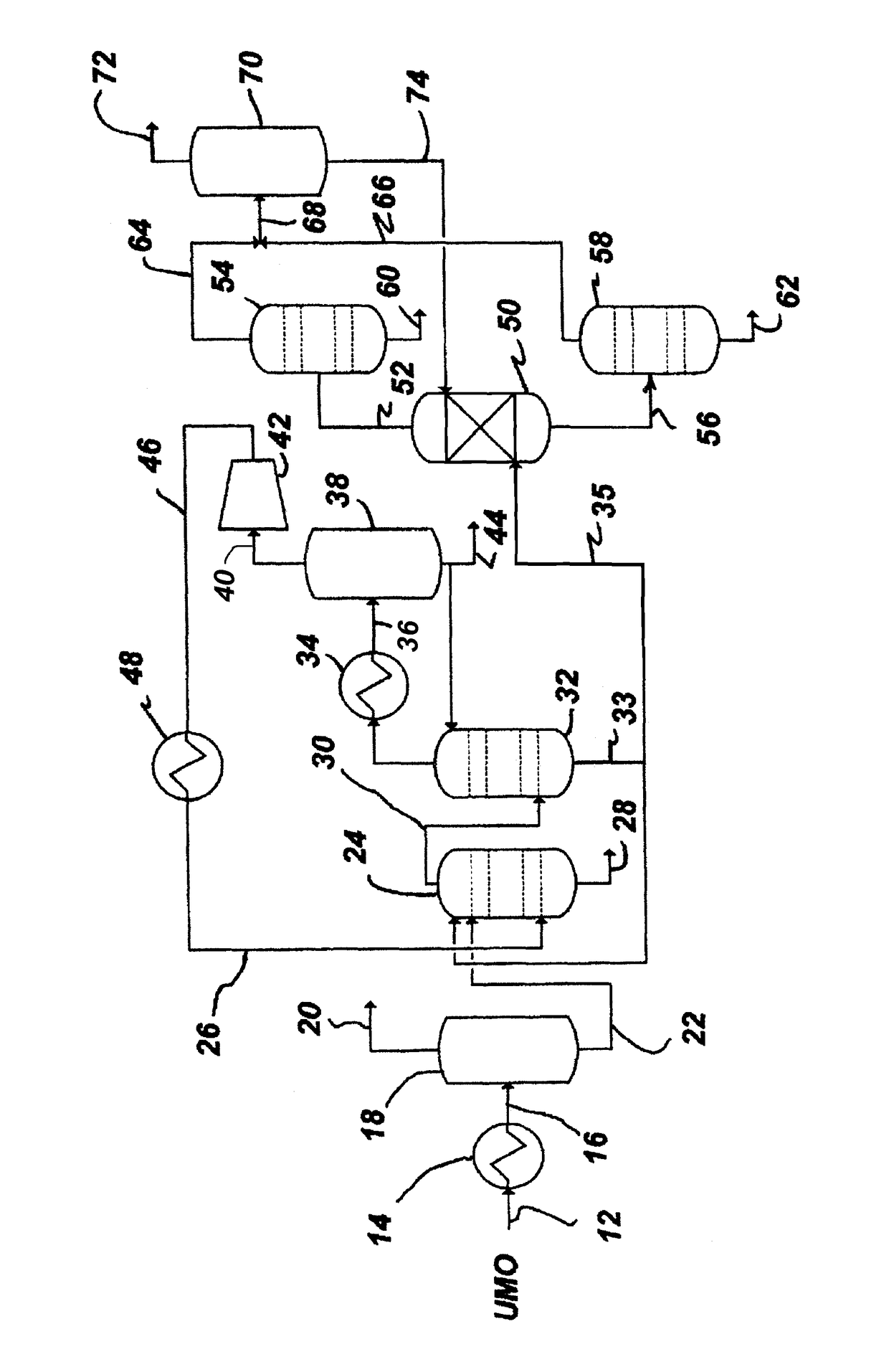Method for stripping and extraction of used lubricating oil
a technology of lubricating oil and extraction method, which is applied in the direction of hydrocarbon distillation, lubricating oil distillation, refining by heating/cooling, etc., can solve the problems of reducing the economic attractiveness of liquid-liquid extraction finishing over hydro-finishing, preventing successful commercialization of prior art processes, and affecting solvent extraction finishing, etc., to achieve safe and relatively high yield, reduce the volume of recirculating extractant, reduce the size and cost of the recovery system
- Summary
- Abstract
- Description
- Claims
- Application Information
AI Technical Summary
Benefits of technology
Problems solved by technology
Method used
Image
Examples
Embodiment Construction
[0018]FIG. 1 depicts a presently preferred system 10 for the nitrogen stripping of used lubricating oil in accordance with this invention. In the system 10, used lubricating oil (ULO) is continuously introduced through an inlet line 12 into a pre-heat exchanger 14 where the ULO is pre-heated to a desired temperature, preferably about 300° F. The pre-heated ULO is directed from the pre-heat exchanger 14 through an effluent line 16 into a pre-heat flasher 18 wherein the more volatile components of the ULO are flashed and withdrawn through an overhead line 20. These components comprise primarily water and a gasoline boiling range overhead product. The gasoline boiling range product is sold into fuels markets as it is unsuitable for lubricating oil.
[0019]With the overhead product removed, the ULO passes through a flasher drain line 22 at desired temperature, preferably about 300° F., and is continuously charged into a first ULO nitrogen stripping trayed column 24, which is referred to a...
PUM
| Property | Measurement | Unit |
|---|---|---|
| pressure | aaaaa | aaaaa |
| temperature | aaaaa | aaaaa |
| boiling | aaaaa | aaaaa |
Abstract
Description
Claims
Application Information
 Login to View More
Login to View More - R&D
- Intellectual Property
- Life Sciences
- Materials
- Tech Scout
- Unparalleled Data Quality
- Higher Quality Content
- 60% Fewer Hallucinations
Browse by: Latest US Patents, China's latest patents, Technical Efficacy Thesaurus, Application Domain, Technology Topic, Popular Technical Reports.
© 2025 PatSnap. All rights reserved.Legal|Privacy policy|Modern Slavery Act Transparency Statement|Sitemap|About US| Contact US: help@patsnap.com


